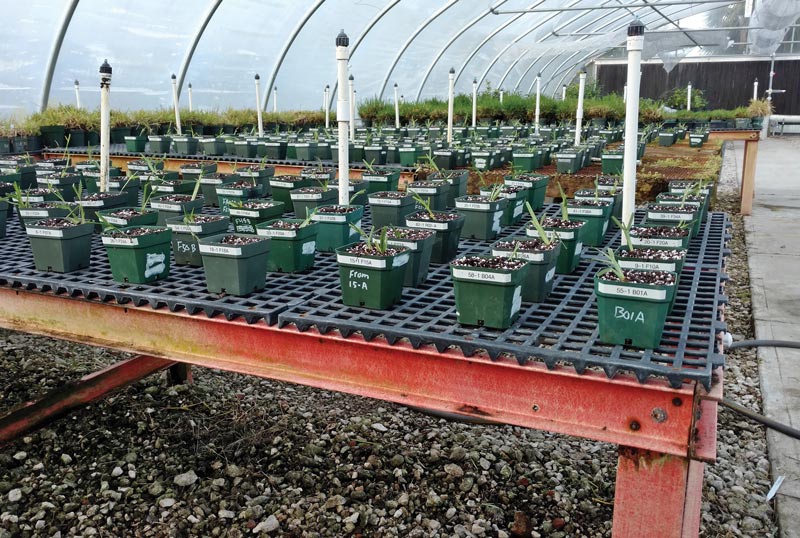
Photo by Jamie Buhlman
Floratam St. Augustinegrass, in production since the 1970s, accounts for approximately 80% of the St. Augustinegrass sod sold in Florida, and an older cultivar, Bitterblue, has been commercially produced since the early 1900s.
Because of the market longevity of both cultivars, it is possible that sod entering the market is variable. Recently, sugarcane mosaic virus (SCMV) was reported to be a component of lethal viral necrosis, which kills Floratam, making SCMV a potentially devastating disease for the sod industry.
This study aims to assess the status of Floratam and Bitterblue and help growers verify that they are providing SCMV-free sod to consumers.
Sod farms in Florida were asked to voluntarily submit samples from Floratam and/or Bitterblue production fields. Samples were tested for the presence of sugarcane mosaic virus, plant morphology was recorded, ploidy was analyzed using flow cytometry, and samples were fingerprinted using a set of 22 previously developed simple sequence repeat primer pairs. Known St. Augustinegrass cultivars were included for comparison. Primer amplification results were used to verify the cultivar identity of each sample.
Twelve sod farms submitted samples, all of which were negative for sugarcane mosaic virus. Flow cytometry results supported the phenotypic assessments, and flow cytometry appears to be useful for initial identification of off-type plants compared with Floratam. Molecular marker analysis will help confirm cultivar identification.
— Jamie Buhlman and Philip F. Harmon, Ph.D., University of Florida, Gainesville; Susana R. Milla-Lewis, Ph.D., North Carolina State University; and Esteban F. Rios, Ph.D., and Kevin E. Kenworthy, Ph.D., University of Florida, Gainesville
Editor’s note: An earlier version of this summary was published in the 2018 ASA-CSSA Meeting Abstracts, ASA and CSSA, Madison, Wis.
Teresa Carson is GCM’s science editor.